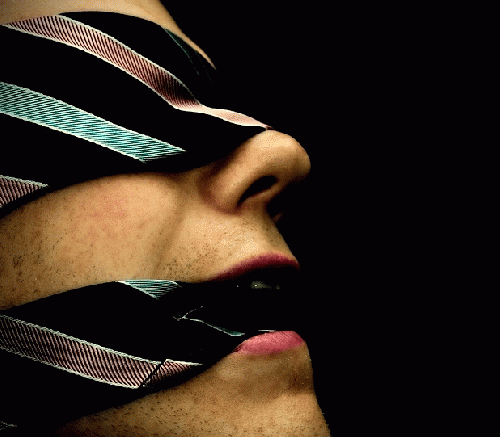We can all feel fragile at times, fading feebly in and
out like a tiny sparkle in the vast firmament. It's easy then to feel helpless,
overlooked, insignificant, and unappreciated.
An entanglement in helpless feelings can certainly dampen
our light, leaving us afraid to be venturesome. We can feel befuddled,
overwhelmed, or exhausted, buffeted about by the winds of misfortune. Disappointment,
dissatisfaction, and the sorrow of not living up to our potential are likely to
haunt us.
A chronic sense of helplessness keeps us from believing
in ourselves, trusting ourselves, and pursuing our destiny. Our self-regulation
weakens, and we fall prey to impulses to overeat, overspend, and overindulge.
We also lose our ability to regulate our emotional life or maintain physical
health, causing us to sink into apathy or become increasingly bitter, depressed,
or ill.
We are indeed helpless when it comes to influencing
many events and situations. We accept this fact with equanimity when we're emotionally
strong. But we can't accept it so easily when plagued by chronic helplessness.
Instead, like a turtle on its back, we experience the personal challenges of
daily life through a painful sense of being unable to rise to the occasion.
Laid low like this, we also perceive global problems
such as war, poverty, and weather changes through the conviction of our
inability to influence them positively in a meaningful way. Instinctively, we
back away from challenges to reform situations, close our mind to heroic
possibilities, and succumb to temptations that adversely affect our health and
general wellbeing.
Some of us sense acutely our painful predicament, and we
desperately want liberation from it. But we can't see the nature of our problem
clearly enough to get any footing. As we struggle to break free of
helplessness, we can feel, in a Catch-22 kind of way, helpless to extricate ourselves
from overriding impressions of impotence, powerlessness, futility, passivity,
and subservience.
If ever there was a quandary--or, more accurately
perhaps, an emotional quagmire--it's the helplessness we can feel when we try to
figure out how we can possibly unravel our entanglement in passivity. As we
thrash about, an inner entrapment seems to close more tightly around us. We
need real insight into the nature of this quandary. The best psychological
knowledge can help to liberate us.
One person told me he felt helpless in detaching himself
from his feelings of helplessness. "I have a tendency to "overthink' and get
myself stuck," he said. He was feeling desperately stuck because his efforts in
thinking so hard to figure things out were, in themselves, exercises in helplessness.
He ended up spinning his wheels. He fooled himself into believing his thinking
had power, when he was simply going after the familiar feeling of more
helplessness.
Thinking is important, of course, but it isn't enough
in itself to deal with chronic helplessness. We also need the self-knowledge
that reveals how our emotions operate. Our emotions have, in a sense, a mind of
their own. Self-knowledge exposes the inner dynamics in our psyche that produce
negative emotions such as chronic helplessness.
Our intelligence works for us behind the scenes as we
keep tracking inner truth. One such truth reveals our emotional attachment to
our helplessness. The fact that we're emotionally attached to our helplessness
is an important concept we need to understand.
How is helplessness an emotional attachment? The negative
feeling is integral to our self-concept and entangled in our identity. We don't
know who we are without this (conscious or unconscious) sense of chronic
weakness. The afflicted individual holds on to the attachment, even when it's painful,
because it's the framework, a kind of primitive lean-to, for his or her psychological
home in the world.
Feelings of helplessness are as old as the day we're
born, and they can linger in our psyche, despite our best efforts to be
independent, self-reliant, and successful in the world. As we're growing up, we
oscillate emotionally between feeling aggressive and feeling passive. Many of
the fears and doubts of childhood and teenage years are associated with the
feeling that we won't have the ability, strength, or resolve to meet the
challenges of becoming a functional, successful adult.
A temptation to interpret daily challenges through the
sense of helplessness is one of the main symptoms of inner passivity. This
passive side of our psyche is a limitation or deficit in our consciousness, and
it impedes the development of our humanity. Inner passivity, a major player in
our psyche and a drag on our humanity, is an enabler of our aggressive inner
critic. In our psyche, we can feel helpless and defensive in the face of our
authoritarian inner critic that treats us as if we're supposed to be
subservient to it. (Read, " The
Futile Dialogue in Our Head .") The conflict between our inner
aggression and inner passivity, when reverberating in our psyche, can reduce us
to the status of a helpless observer of our own life or, even worse, a clueless
bystander. Deeper insight into this conflict enables us to develop a stronger,
more stable sense of self.
Another person told me, "I haven't been able to believe
that I'm not helpless. Even though I know on an intellectual basis that this
whole thing [being tangled up in the helpless experience] is irrational, some
part of me still believes that I'm helpless. The effects of believing this
weigh me down."
I told him, "Believing that you're helpless, or getting
hung up on the idea that you're truly helpless, is a defense which goes like this:
I'm not attached to feeling
helpless--Look, the problem is that I really am helpless. By accentuating
your impression of being truly helpless, you create a clever (though
self-defeating) defense that enables you to continue to hold on to your
attachment to feeling helpless. You have to see through the deceptiveness of your
defense."
(Note: You can view every article as one long page if you sign up as an Advocate Member, or higher).





